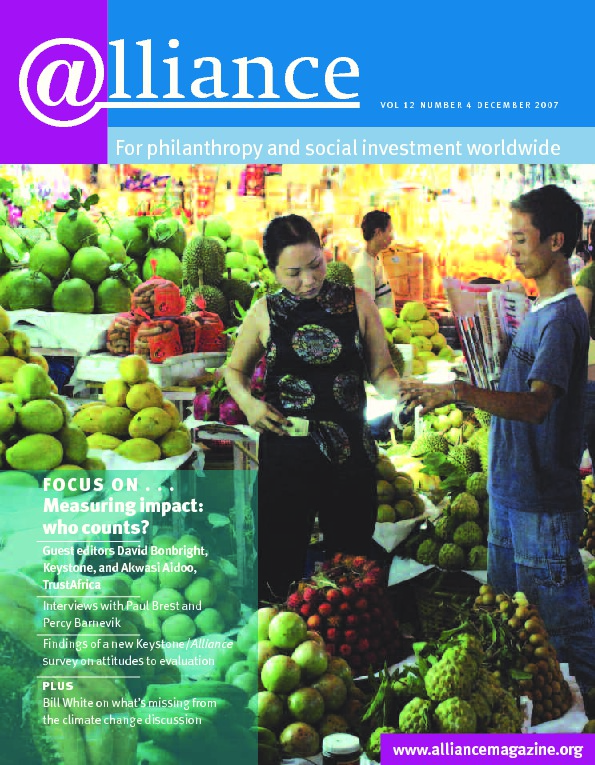Political instability, poor legislation and lack of a clear distinction between the roles of government and civil society are the main handicaps to the evolution of social investment in Latin America. This was one of the conclusions of a leadership forum on the topic, held in São Paulo, Brazil in September and sponsored by Institute for the Development of Social Investment (IDIS) and Charities Aid Foundation (CAF).
There are cultural obstacles, too. ‘Latin America does not enjoy a grantmaking culture,’ said Jorge Villalobos (CEMEFI, Mexico), while Carolina Langan (Argentine Group of Foundations and Businesses) argued that private social investment in the region takes the form of ‘social assistance, influenced mostly by Christian charity’.
But there are opportunities too, as highlighted by a preliminary meeting of 32 Latin American participants. These include increasing public recognition of private social investment and growing resources for it, the globalization of business, the revolution in information and communication technologies, and a growing number of innovative organizations to invest in.
Russell Prior (CAF) spoke of the need for a ‘more sophisticated and professional sector, with more innovative funding options’. There are signs that this is developing. According to Cláudio Giomi (Arcor Foundation), companies have begun to see giving as an investment rather than a donation, which has led to the hiring of professional social managers. Flavio Flores (Andes de Cajamarca Association, Peru) believes that the private sector now sees sustainable local development as a goal of its social investment. All these things, together with an increase in the resources and funders involved, explain the growing public awareness of private social investment, argued Guillermo Carvajalino (Business Leaders for Education, Colombia).
Subscribe now from only £45 a year!
This article is only available for our subscribers
Existing users can login here





